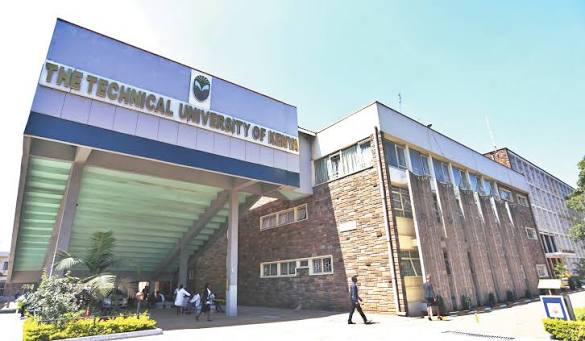Nairobi, Kenya – October 14, 2025 – Staff members at the Technical University of Kenya (TU-K) have issued a fervent plea for intervention from relevant authorities, highlighting what they describe as systemic oppression, ethnic bias, and financial mismanagement under the leadership of Vice Chancellor Prof. Eng. Benedict Mutua.
In a detailed statement circulating among university stakeholders and shared with the public, aggrieved employees accuse the administration of fostering an environment rife with irregularities.
They claim that Prof. Mutua’s decision-making process is heavily influenced by unverified rumors, personal connections, and ethnic considerations, rather than established policies or factual evidence. This has reportedly led to arbitrary dismissals and a culture of fear among the workforce.
The allegations come amid a nationwide industrial action by public university staff, organized by the National Union. While universities across Kenya grapple with the strike, TU-K’s response has drawn particular scrutiny.
According to the staff, the administration has interdicted several members, labeling the strike as illegal. These interdictions are based on purported social media posts from a private WhatsApp group – one that the Vice Chancellor is not part of – sparking concerns over violations of privacy, freedom of expression, and due process.
Beyond the labor dispute, the statement outlines a series of institutional and financial woes plaguing the university:
- Non-payment of full salaries: Staff report receiving only partial payments, such as 50% of their September salaries, with no clear explanation, even as other institutions have disbursed full amounts.
- Failure to remit deductions: Statutory contributions like NHIF, PAYE, and NSSF are deducted from payslips but allegedly not forwarded to the respective bodies.
- Loan arrears backlog: Employees face summons from lenders due to over 14 months of unpaid loan deductions.
- Poor working conditions: Issues include exposure to hazardous materials like asbestos and inadequate office spaces.
- Pension scheme collapse: Retirees are said to be suffering severe financial hardship, with some reportedly falling into depression.
The staff are calling for an urgent, independent investigation into TU-K’s administrative and financial operations to address these grievances and restore accountability.
Spotlight falls on key officials implicated in the complaints. The University’s Legal Officer, Ms. Ruth Kirwa, is accused of providing advice that enables controversial decisions while holding dual memberships in the Kenya University Staff Union (KUSU) and the Inter Public Universities Councils Consultative Forum (IPUCCF). This duality is alleged to create a conflict of interest, prioritizing personal gains over staff welfare.
Further claims suggest she has signed documents without authorization from superiors and failed to account for KSh 1.2 million earmarked for a medical procedure – a matter flagged by the internal audit team.
Questions also surround the Acting Human Resources Director, Mr. Stephen Karanja, who is said to lack proper HR qualifications and is being used to intimidate employees. Similarly, Deputy Registrar (HR) Mr. Borter, with a background in economics rather than HR, is reportedly overstepping his expertise in personnel matters.
In their appeal, the staff emphasize the need for immediate action to protect their dignity, welfare, and professional rights. “We are pleading for rescue from oppression,” the statement reads, urging oversight bodies to intervene and enforce principles of transparency and fairness.
As of now, TU-K’s administration has not publicly responded to these allegations. Efforts to reach the Vice Chancellor’s office for comment were unsuccessful by press time.
This developing story underscores broader challenges in Kenya’s higher education sector, where labor disputes and governance issues continue to simmer. Authorities are expected to weigh in on the matter in the coming days.

